Search Engine Optimisation (SEO) is a crucial part of any digital marketing strategy. It involves a range of techniques designed to improve a website’s visibility and ranking on search engine results pages. As the algorithms search engines use continue to evolve, it’s more important than ever to stay updated with the latest best practices in the field of SEO. In this article, we’re going to delve into seven key Seo strategies.
Each of these facets play a vital role in ensuring your website is easily discoverable, user-friendly, technically sound, and well-regarded by other websites.
On-Page SEO
On-page SEO refers to optimisations made directly on the pages of a website to improve rankings in search engines. The main goal is to make the pages as appealing to search engines as possible so they rank highly for relevant searches.
Some key elements of on-page SEO include:
- Page Title Tags – The title tag appears as the clickable headline for a page in search engine results. It should be concise and include primary keywords relevant to the page content.
- Meta Description – This snippet under the title provides a summary of the page. Well-written descriptions can entice searchers to click through to the page.
- Headers – Header tags (H1, H2, etc.) help indicate the structure and hierarchy of content on the page to search engines.
- Content – The body content should include keywords naturally and provide value to users. Unique, high-quality content boosts rankings.
- Image Alt Text – Descriptive alternative text for images includes keywords and gives context. It also improves accessibility.
- URL Structure – Search engines favor pages with URLs that are logically organized and include keywords.
- Internal Linking – Linking between related pages on your site helps search engines navigate and understand site architecture.
- Page Speed – Faster loading pages improve user experience and rankings. Optimise images, minimise redirects, etc.
- Mobile Optimisation – With increased mobile usage, ensuring a responsive mobile-friendly design is key for on-page SEO.
- Keyword Targeting – Conduct thorough keyword research and strategically incorporate keywords in titles, headers, content, URLs, alt text, etc. But avoid over-optimisation.
- Schema Markup – Adding schema.org markup helps search engines understand page content.
Content Optimisation
Optimising the content on your website is crucial for good SEO. High-quality, useful content drives traffic, engagement, and rankings.
Create High-Value Content
Focus on producing content that provides value for your target audience. Useful, informative content that solves problems for readers will engage both users and search engines.
Optimise Content Length
Ideally, blog posts and articles should be at least 1,500+ words long. Long-form content tends to rank better as it goes in-depth on topics. But quality trumps quantity.
Leverage Topic Clustering
Creating content around specific topics or keywords allows you to establish yourself as an authority site on those subjects. This topic clustering sends strong relevancy signals.
Insert Relevant Images & Videos
Inserting images and videos where relevant enhances engagement and SEO. Optimise them with keyword-rich filenames, alt text, titles, captions, and surrounding content.
Utilise Content Updating
Search engines favor websites with frequently updated content. Updating old posts by adding new info or restructuring content can also boost rankings.
Promote Expert Authorship
Content written by experts or thought leaders in a field carries more weight. Promote author profiles and expertise to build trust.
Include Target Keywords Naturally
Seamlessly incorporate relevant keywords within your content to make the pages rank for those terms. Avoid awkward over-optimisation.
Structure Content Strategically
Break up text with descriptive headers and subheadings. Use bullet points and lists when appropriate. Formatting content helps comprehension and SEO.
Optimise Content for Local SEO
For local businesses, optimising content for local SEO by including keywords like city names along with relevant, localised information is key.
Technical SEO
Technical SEO focuses on the behind-the-scenes technical health of a website to ensure maximum crawlability, indexation and ranking potential.
Optimise Site Architecture
A well-organised information architecture with a clear hierarchy helps search engines crawl and understand your site. Include text links for navigation.
Improve Crawl Budget
Crawl budget refers to how much of your site Googlebot can crawl within a period. Ensure Google can efficiently crawl your most important pages.
Enhance Site Speed
Page speed is a ranking factor. Optimise images, enable compression, minimise redirects, and leverage browser caching to accelerate load times.
Fix Broken Links & Redirects
Fix any broken links across your site and avoid overusing 301 redirects. Monitor 404 errors in Google Search Console.
Make Robots.txt Optimisations
The robots.txt file controls crawling access. Optimise this file for search engine spiders and test it using online robots.txt testers.
Implement Sitemaps
XML sitemaps list all pages on your site to help search engines with crawling. Submit sitemaps in Search Console for better indexing.
Optimise Page Experience Scores
Google’s “Page Experience” algorithm looks at Core Web Vitals metrics like LCP, FID and CLS. Improve site speed, responsiveness, etc. to enhance these.
Choose a Mobile-Friendly Platform
Leverage a modern responsive mobile-friendly CMS or framework like WordPress or Bootstrap. Ensure a seamless experience on all devices.
Off-Page SEO
Off-page SEO involves factors external to your website that influence rankings like backlinks, social media, and brand mentions.
Build High-Quality Backlinks
Earn backlinks from authority sites to boost rankings. Focus on relevant niche websites with high domain authority and traffic.
Leverage Link Building Outreach
Proactively reach out to quality sites to build relationships and pitch relevant guest posting opportunities to earn backlinks.
Participate in Link Roundups
Getting featured in link roundup posts like “Top [Niche] Blogs” can grab great niche backlinks and referral traffic.
Write and Distribute Content
Creating great content and getting it featured on other high-authority sites through guest posting or syndication earns backlinks.
Promote Content on Social
Sharing content on social media helps boost engagement and increases visibility. Leverage hashtags and user handles to expand reach.
Utilise Forums & Communities
Actively participate in relevant forums and communities to build your reputation and insert backlinks in signatures and profiles.
Publish on Industry Aggregators
Getting your content aggregated on popular platforms like Medium helps expand your audience and can build links.
Create Link-Worthy Assets
Develop resources like tools, quizzes, calculators etc. that other sites will be keen to link to and embed.
Monitor and Improve Link Profile
Check your backlink profile regularly using tools like Ahrefs and disavow low-quality links while earning more high-value links.
Let’s explore seven key SEO strategies under these categories to boost your website’s search engine performance.
Effective use of header tags (H1, H2, H3): Header tags are used to differentiate the headings (H1) and subheadings (H2, H3, etc.) of a web page. These tags give search engines clues about the topic and structure of your content. H1 tags are usually reserved for the page’s main title, while H2 and H3 tags are used for section titles and sub-sections. It makes content more readable for users and allows search engines to understand the importance and hierarchy of the content.
Understanding how to structure data in JSON-LD format: JSON-LD (JavaScript Object Notation for Linked Data) is a method of encoding Linked Data using JSON. Implementing structured data using schema types like NewsArticle, LiveBlogPosting helps search engines better understand your content and enhance your visibility in search results. It can provide additional details about the page’s content and can potentially lead to the generation of rich results in search engine result pages (SERPs).
Utilising social media to promote content: Promoting your content on social media platforms can help increase its visibility and reach. When content is shared and engaged with, it can drive more traffic to your website. Furthermore, social signals such as likes, shares, and comments may indirectly influence your site’s search engine rankings. Additionally, if your content is highly engaging, it could earn more backlinks as other sites link to it, further improving your site’s SEO.
Building high-quality and relevant backlinks: Backlinks are links from other websites pointing to your site. High-quality, relevant backlinks from authoritative websites are seen as votes of confidence in your content. They show search engines that your content is valuable and trustworthy, which can help improve your website’s ranking in search engine results.
Implementing Open Graph meta tags: Open Graph meta tags are snippets of code that control how URLs are displayed when shared on social media. They allow you to specify elements such as the title, description, and image used in the social share, creating more appealing and engaging previews and potentially driving more traffic to your site.
Utilising meta lang tags: Meta language tags help specify the language used in your site’s content. This helps search engines understand the language of your content and can aid in serving it to users who speak that language. It’s particularly useful for multilingual websites to ensure the correct language version is displayed to users in different regions.
Optimising the critical rendering path: The critical rendering path refers to the sequence of tasks the browser performs to render the initial view of a webpage. Optimising this path means minimising the number of critical resources (like CSS and JavaScript), deferring the loading of non-critical resources, and prioritising the loading of “above-the-fold” content (the portion of the webpage visible without scrolling). This results in faster loading times, providing a better user experience and potentially improving your site’s search engine rankings, as page speed is a ranking factor.
Summary
In summary, this article explored essential SEO strategies across four core pillars:
- On-page SEO focuses directly on optimising individual website pages through tactics like meta tags, headers, content, and technical site enhancements.
- Content optimisation involves creating high-quality, in-depth content that engages users and incorporates relevant keywords naturally.
- Technical SEO ensures your site has a solid technical foundation through speed and infrastructure optimisations.
- Off-page SEO builds external authority and awareness through social media, backlinks, and other external mentions.
Implementing best practices across these areas can significantly improve your website’s search engine visibility, traffic, and performance.
The most important takeaway is that SEO is an ongoing process. As search engines evolve, you must stay up-to-date on the latest trends and continuously refine your approach.
For advanced SEO support custom-tailored to your business, please contact our digital marketing agency. Our SEO experts are here to assess your website, identify optimisation opportunities, and execute proven strategies that get results. Don’t leave your SEO to chance – partner with the professionals today to take your search rankings to the next level!
Sobre el autor: Michael Masa
¿Por qué debería escucharme? Con una rica formación en marketing y pasión por compartir conocimientos, he dedicado los últimos 9 años de mi vida a este campo. He trabajado como director de marketing y he contribuido decisivamente a dar forma a la estrategia de marketing de una de las principales aseguradoras europeas, BAVARIA AG.
Antes de mi puesto actual, pasé 12 años como Director de Ventas, gestionando un equipo de 12 personas dinámicas y aplicando las últimas técnicas de ventas para impulsar el éxito. Esta experiencia me permitió perfeccionar mis dotes de liderazgo y adquirir un profundo conocimiento del sector de las ventas.
Ahora estoy al frente de Dealers League, una agencia de marketing que no solo crea y gestiona sitios web para empresas, sino que también se centra en la importancia de las estrategias de marketing eficaces. Reconociendo la necesidad de un aprendizaje continuo en este sector tan acelerado, ofrecemos cursos sobre las últimas técnicas de marketing.
Mi variada experiencia en ventas y marketing me da una visión única de cómo se entrecruzan estas dos áreas cruciales. Espero poder compartir mis conocimientos y puntos de vista con usted a través de este blog.


